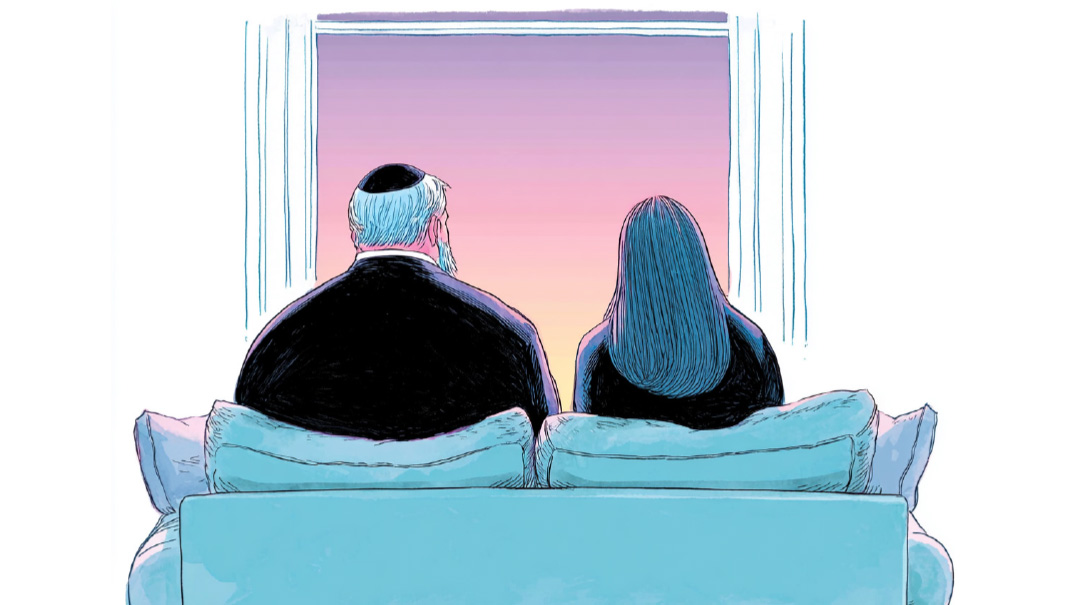When an Apology Hurts
| July 22, 2025What is the true purpose of an apology?

When an Apology Hurts
Sara Eisemann
Never ruin an apology with an excuse.”—Unknown
WE humans can be so impossibly human. We can take a potentially elevated moment and reduce it to an act of self-preservation, completely missing the opportunity for connection and transcendence.
What is the true purpose of an apology? In an effective apology we step into the shoes of the wronged party and convey that we truly feel, or at least understand, the pain we caused and the harm engendered. That pain is real regardless of mitigating circumstances. To touch the soul of the other is to own and acknowledge that pain. Hard stop.
Unsurprisingly, having to apologize puts us in an uncomfortable position that we prefer to avoid. By and large, we’re decent people who don’t want to hurt others, especially not those we love. (The fact that we hurt those we love more than anyone else is just part of the world design, but that’s for another day.) Seeing and acknowledging that behavior can make us squirm internally; it activates our defenses and puts them in high gear.
We want to know, and we want others to know, that we are not bad people and that our behavior was justified. But justified or not, we were the messengers of pain. The first step in ameliorating that pain is seeing it reflected in the other person’s eyes and truly apologizing for having caused it.
The excuse is an attempt to whitewash the pain and to invalidate the hurt party’s experience. If I had a good reason for my behavior, then you have no right to be upset. But feelings don’t rely on logic. They are what they are. And maybe after the pain is acknowledged the background information will help to lessen the sting because it provides context. But the excuses don’t change the fact that our behavior had an impact. It might make us feel better, but a true apology is not about us — it’s about mending the rupture we created.
In her book Why Won’t You Apologize? Harriet Lerner delineates nine essential ingredients of a genuine heartfelt apology. They are:
- Does not include the word “but”;
- Keeps the focus on your actions, not on the other person’s response;
- Includes an offer of reparation or restitution;
- Does not overdo;
- Doesn’t get caught up in who’s more to blame or who started it;
- Includes a plan for avoiding a repeat;
- Should not serve to silence the aggrieved;
- Shouldn’t be offered to make you feel better if it makes the hurt party feel worse;
- Does not ask anything of the hurt person, not even forgiveness.
The running themes of these criteria is an assumption of responsibility and a focus on the offended party. Any attempt to circumvent either of these will result in further breach rather than repair.
Apologizing well is hard. It defies every self-preserving instinct we possess. Every bone in our body wants to rationalize, to defend, to excuse. But reining in those instincts has the power to build something much stronger and longer lasting — a true, connected relationship where our loved one feels seen and heard.
Sara Eisemann, LMSW, ACSW, is a licensed therapist, Directed Dating coach, and certified Core Mentor.
Enjoy Your Baby
Tsippy Kraus
AS
parents, Much of our interaction with our newborns happens during moments of stress. When a baby cries, we instinctively pick them up and care for them, whether it’s offering a feed, a diaper change, or simply comfort. We rock them to sleep, soothe them when they’re upset, and when they’re finally calm or asleep, we put them down.
Practically speaking, this can result in a pattern where most of parents’ contact with their baby is when he’s being difficult.
The best childrearing advice I ever received was to enjoy my baby when things were going well. I learned that physical closeness and affection during the peaceful times are just as important for a baby’s emotional and physical development as the care we give during the hard times. This gave me permission to pick up my sleeping baby and rest back in my armchair, enjoying a cuddle. I savored those quiet moments, knowing that even then, I was doing important, meaningful work.
It also made me realize that my husband deserved to experience those precious moments, too. If he came home and the baby was asleep, he didn’t have to miss out; he could gently pick up the baby and enjoy bonding time as well.
Babies can’t be spoiled by love and physical comfort. In those first few months, holding your baby as much as you want will only benefit them. The constant contact nurtures security and connection. Later, once your baby has settled into a routine, your approach might change, but in those early days, embrace the closeness. Everything else can wait.
Tsippy Kraus is a childbirth educator and birth trauma release practitioner. She also founded Birth Journeys Online, a prerecorded online childbirth education course for Jewish couples.
Dive into Decisions
Abby Delouya
F
or some people, making decisions can feel overwhelming. There are different reasons why someone might struggle with indecisiveness, ranging from adverse experiences to fear of making mistakes to modeling indecisive behavior we’ve learned from others. Making decisions is a part of life and implementing these tips can help mitigate overwhelm.
- Set a time limit: Assign a hard deadline so you can’t ruminate too long.
- Small decisions first: Practice faster decision making on low-stakes decisions first (e.g. what to eat for breakfast versus considering a career change.)
- Be selective with advice seeking: Too many opinions can end up being confusing.
- Commitment: Follow through on your decision. If necessary, plan how you will execute your decision.
- Reflection: Done properly, without obsessing, reflecting on how something worked out and why you chose to do it can improve or encourage future decision-making processes, sharpen your instincts, and build your self-confidence in your ability to make good decisions.
Abby Delouya RMFT, CPTT, is a licensed marriage and family therapist in private practice with a specialty in trauma and addiction. She’s also the Director of Intake and Care Management at Ray of Hope.
(Originally featured in Family First, Issue 953)
Oops! We could not locate your form.







